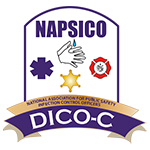The expectation for the CCP-C® exam candidate and/or the FP-C® exam candidate is a mastery of current trends and therapies in critical care transport medicine in a flight or ground environment, as well as a significant knowledge of ACLS, PALS, NALS and BTLS/ITLS. FP-C® exam candidates should also have a significant knowledge of flight physiology and current CAMTS flight safety standards. The certification exams are not meant to test entry-level knowledge, but rather the experienced paramedic's advanced skill level.
The expectation for the CP-C® exam candidate is competency in mobile integrated healthcare, and expanded EMS services in rural and urban settings, including various healthcare, mental health, and housing and service needs. This examination is not meant to test entry-level knowledge, but rather to validate competency of those paramedics providing services beyond the roles of traditional emergency care and transport.
The expectation for the TP-C® exam candidate is competency in casualty assessment, stabilization, and evacuation in hostile and austere environments, as well as thorough familiarity with tactical principles, triage, and operational medicine. Candidates should have significant knowledge of the Committee on Tactical Combat Casualty Care and the Committee for Tactical Emergency Casualty Care guidelines, management of the full tactical injury spectrum (from less-than-lethal to CBRNE), force health protection, and medico-legal aspects of Tactical Emergency Medical Services.
The expectation for the TR-C® exam candidate is competency in basic casualty assessment, stabilization, and evacuation in both hostile and austere environments, as well as thorough familiarity with tactical principles, triage, and operational medicine. The candidate should understand the Committee on Tactical Combat Casualty Care (TCCC) and the Committee for Tactical Emergency Casualty Care (TECC) guidelines for care management within the tactical injury spectrum. This knowledge should include less-than-lethal to CBRNE, force health protection, and the medico-legal aspects of providing Tactical Emergency Medical Services.
The expectations for the DICO-C exam candidate is an understanding of the laws applicable to infection control, exposure control plans, the risks for disease transmission, vaccines, immunizations, and post-exposure care unique to the role of the Infection Control Officer. The DICO-C examination is not meant to test entry-level knowledge, but rather to validate competency of those Emergency Responders providing services beyond the roles of the routine emergency provider, with competency in infection control management, disease transmission, vaccines, and immunizations.
The expectations for the WP-C® exam candidate is competency in casualty assessment, stabilization, and evacuation in hostile and austere environments, as well as thorough familiarity with wilderness principles, triage, and operational medicine. Candidates must understand how to stabilize, assess, treat, and protect patients in remote and austere environments until definitive medical care is reached and understand the applicable gear, skills, and knowledge needed to best function in wilderness environments, including a fundamental understanding of the pathophysiology of the conditions that present in this remote environment.
The expectations for the Maternal Fetal Transport microcredential candidate is knowledge of current maternal assessments, multidisciplinary collaboration, maternal patient centric care, pharmacology, changes to maternal physiology, etc. unique to the maternal fetal transport environment.
IBSC Board Certification

Designation Infection Control Officer Exam Preparation (DICO-C)

Wilderness Paramedic Exam Preparation (WP-C) WP-C Content Outline